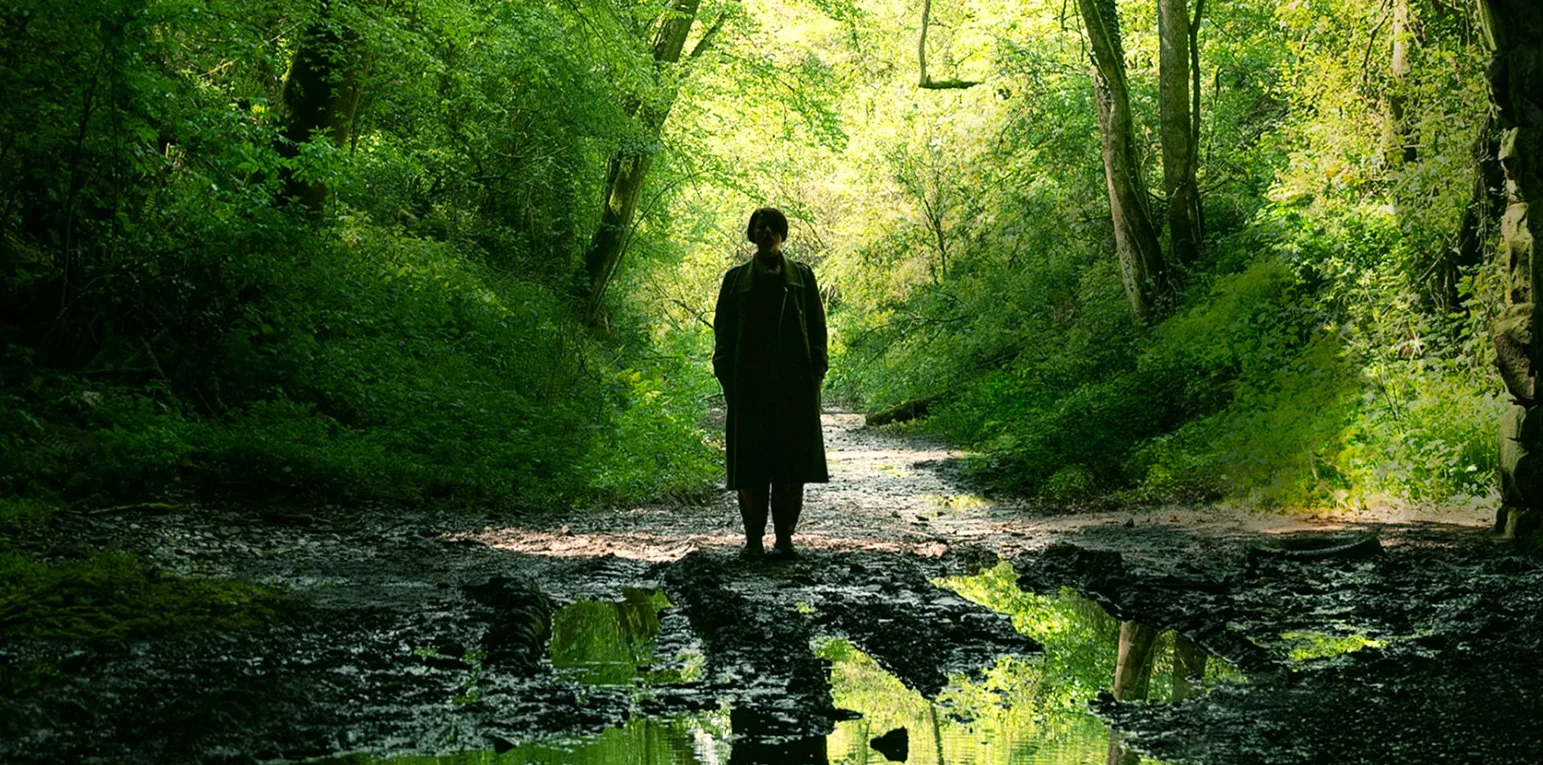
Film Review: Men
Film Reviews
Men
Director: Alex Garland
DNA Films
In Theaters 5.20
One of the tricky things about film criticism is that art is so subjective. When someone disagrees with a review, a common quip that I hear is, “Did we see the same movie?” Writer-director Alex Garland’s provocative new horror film, Men, is as strong an example I could ever find of the fact that no, in fact, we don’t always all see the same film.
Men introduces us to Harper (Jessie Buckley, I’m Thinking of Ending Things, The Lost Daughter), a young woman who has recently suffered a horrible tragedy. In need of some time alone, she retreats to a small, secluded village in the English countryside, hoping to find some peace and quiet, as well as time to heal. Harper goes for walks in the woods, though she soon gets the feeling that she’s not alone. Even when she returns home, there is an increasing feeling that someone—or something—is stalking her and closing in fast. Harper’s vague sense of dread gradually gives way to a palpable, living nightmare.
Men is Garland’s third film following Ex-Machina and Annihilation. It’s the first that doesn’t fall into the science fiction genre, though it does takes Garland’s penchant for the cerebral and surreal and dials them up to 11. Men is gorgeously photographed by Rob Hardy, who shot both of Garland’s previous films, as well as Mission: Impossible – Fallout, and everything about the visual scheme of Men is sumptuous and frequently beguiling.
Apart from Buckley, the majority of the cast is played by Rory Kinnear (No Time To Die, Penny Dreadful), appearing as every male that Harper meets in the village, occasionally employing the use of CGI if there’s more than one of him at a time (or his face needs to be put on the body of an adolescent, which would be problematic if it wasn’t intended to feel creepy, but it’s effectively unsettling). Kinnear is so terrific that it took me a bit of time to realize that some of these characters were him; each is distinctive and seems to exist in their own reality. Buckley, one of the most exciting new breakthrough talents of the decade so far, is mesmerizing every step of the way. Garland chooses to keep us in the dark as to whether Harper sees that these men all look the same, whether they only look the same to her and frankly as to just about everything that is going on.
Men had me spellbound from beginning to end, but even for those who are familiar with Garland’s work, it’s a film that requires patience and effort. The director has very deliberately made this a movie that relies as much on what the individual audience member brings to it—and what they choose to take from it—as much as any intended meaning. There’s definitely a touch of a feminist spin on Get Out, with some commentary on misogyny and on a society that punishes women for being women while also being utterly dependent on and obsessed with a female presence.
Men is frequently uncomfortable, and while I found it too riveting to ever look away, the third act becomes so graphic that I would not be surprised if most screenings have one or two squeamish audience members walking out. Even the most astute and committed viewers aren’t likely to leave Men feeling completely sure about what they just watched, and the discussions people are likely to have afterward could go anywhere. Frankly, I flat-out disagree with a number of my own conclusions about what Men is or isn’t saying.
The only two things that it’s safe to say for certain about Men are these: It’s likely just too far out there to gain mainstream awards consideration, and decades worth of film classes will be discussing and dissecting long Men long after the ”Best Picture” picks for the year have left our collective consciousness. –Patrick Gibbs
Read more reviews of Alex Garland works:
Content Shifter: 7 Series To Stream in March 2020
